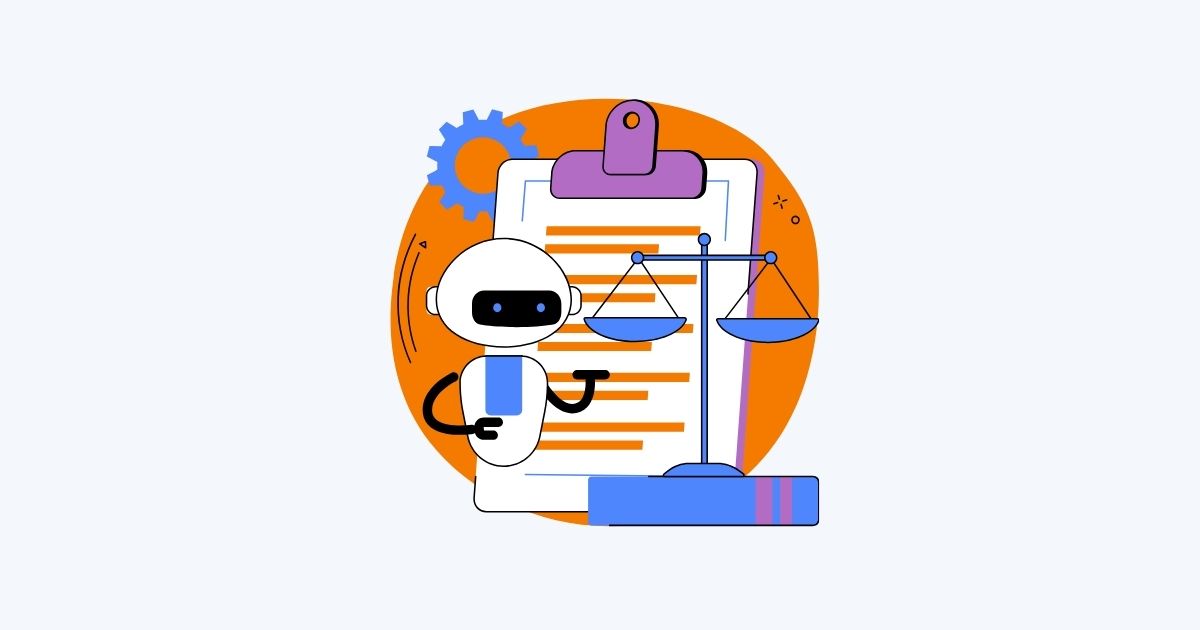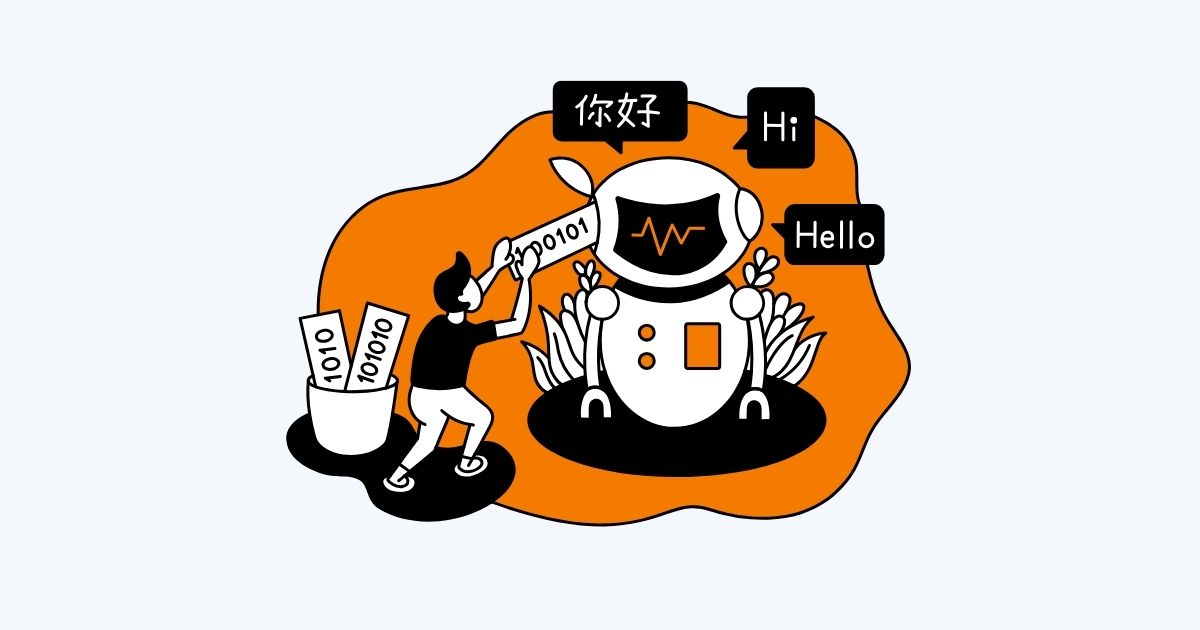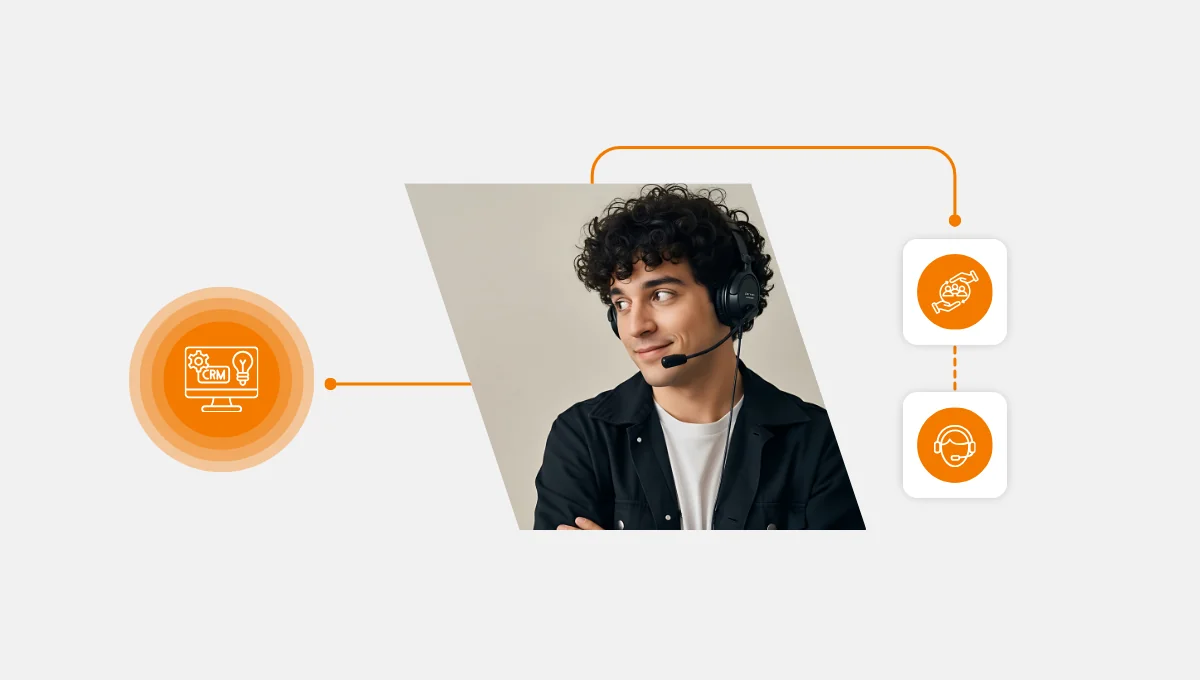The call center industry is always ready to adopt new technology. The biggest and newest example is accepting AI in call centers for customer service processes. From managing simple queries to handling complex issues, AI has been deeply integrated into call center functioning. AI technologies, including machine learning and natural language processing, make workflows effective and efficient.
At Call Center Studio, we offer you cloud-based software offering all AI solutions. Our cloud call center software and AI solutions can revolutionize your customer service experience. Our AI solutions include chatbots, IVR systems, training systems, and data analysis that largely enhance productivity and streamline your call center operations.
Let’s read further to learn how our cloud call center software can be helpful for you.
How Is AI Used in Contact Centers?
AI-based contact centers have reshaped customer service overall. AI’s innovative technology mirrors the cognitive capabilities of humans in modern computer systems. With this, these AI systems can understand, interpret, and analyze customers’ behavior and language, making them more effective.
Based on GMI reports, the call center AI market has a value of around 1.8 billion USD in 2023. Also, it is expected to grow at a rate of 19.8% (CAGR) from 2024 to 2032. This growth is the result of increasing demand for better customer service. Also, the higher rates for maintaining human staff have facilitated this growth.
Here are some top applications that tell you how AI is used in customer service.
Automated call routing is one important AI feature. In this AI, algorithms analyze incoming calls and accordingly transfer the call to the best available agent. It has greatly reduced the waiting time for customers. Also, the task of manually transferring the calls has become obsolete.
Powered by NLP and ML, interactive voice systems and chatbots work as human agents while dealing with customers. All these virtual agents can handle multiple customer queries in real time. As a result, human agents get more time to focus on complex and important issues.
With AI technology in place, call center supervisors are free from manual quality assurance. Now, AI does a complete review of calls and provides speech analytics. All this data helps managers quickly assess and optimize agent performance in real time.
You can also implement AI technology to check whether call centers meet all regulatory requirements. These compliances are associated with data security and privacy. AI also secures customers’ data through encryption and data masking, preventing data leakage.
Accurate and flexible scheduling is the main foundation for your contact center. With AI, you can analyze call volumes, historical call data, marketing campaigns, product launches, etc.; accordingly, human agents can schedule their work.
Based on its predictive analytics feature, it can predict customer queries and provide solutions to the agents even before the customer asks.
The sentiment analysis feature of AI allows you to identify customers’ moods and behaviors. Based on the information available, you can tailor your interaction with the customer.
AI also helps call centers detect any fraudulent activities, protecting customers and your organization.
With so many benefits, AI’s impact on call centers is undeniable and indelible. However, along with the transformative benefits of AI, its risks are equally apparent. AI algorithms can lead to poor decision-making, preventable errors, and introduce bias. As a result, it may lose its credibility over time. Thus, you must commit to the responsible AI principle.
What Is Responsible AI?
A set of practices that ensures that you design and deploy all AI systems ethically and legally. While implementing responsible AI, you minimize the chances of AI causing any harm.
What Is the Use of Responsible AI?
The use of responsible AI becomes clear with its principles. The key principles are:
Transparency:
AI systems should be transparent, easy to understand, and easy to explain. Any developer or user using the system must be able to comprehend its usage and influencing factors. With this transparency, AI systems will become more trustworthy.
Fairness:
AI systems must be free from any kind of bias. The AI algorithms must not favor any particular group based on gender, socioeconomic status, or race.
Accountability:
AI systems must monitor and audit their performance. Also, you must be accountable for the impact of your AI systems. It’s you who will address any negative consequences of the AI system.
Privacy and security:
AI systems must maintain the privacy and security of the customers. There should not be any data leakage, and unauthorized data access must be prevented.
Inclusive collaboration:
While developing AI systems, you must include individuals from different fields. Involving experts from law, social science, ethics, etc. ensures a holistic approach to development. Also, it allows consideration of different perspectives.

Why Are Responsible AI Practices Important to An Organization?
The use of AI is becoming imperative for any organization to remain competitive. With the increasing inclusion of AI in business processes, it has become all the more important to use AI more responsibly. Let’s know why:
To manage financial and reputational risks:
Biased, unfounded, or unreasonable responses from your AI systems can tarnish your organization’s reputation. Your customers can sometimes get emotionally hurt by the response generated by Ais. AI systems can sometimes put private data in the unintentional domain. Incorrect data and assumptions may generate responses, which may in turn attract lawsuits and claims against the organization. Customers and other stakeholders can develop deep mistrust towards your organization. It can lead to lost clients and revenue over time.
To maintain ethical adherence:
Sticking to ethical practices is paramount to any organization looking to excel and earn a solid clientele. The use of AI sometimes exposes an organization to being looked upon as unethical or biased. AI models should be deployed with the utmost care. It should be completely fair. There should not be any bias in data collection, model building, or monitoring.
To maintain compliance with government regulations:
With the increasing use of AI, the government is also introducing new regulations and soliciting compliance. Multi-country operations expose a company to different requirements in different countries. Multiple audits are being imposed on any business these days. Unmonitored use of AI, coupled with non-human oversight, may leave any organization non-compliant. It may attract heavy fines and bad press. Sometimes, monetary damages may grow so heavy that organizations may have to wind up their entire business. The use of AI by businesses in heavily regulated sectors such as healthcare, the military, financial services, food, etc. should be done responsibly.
Conclusion:
Concepts like cloud call center software help you implement responsible AI solutions in your contact center. At Call Center Studio, we ensure to design and offer AI solutions to be used responsibly.
Using AI responsibly brings environmental and societal benefits to humanity. We help you comply with global AI regulations so that you remain competitive and avoid any liability.





